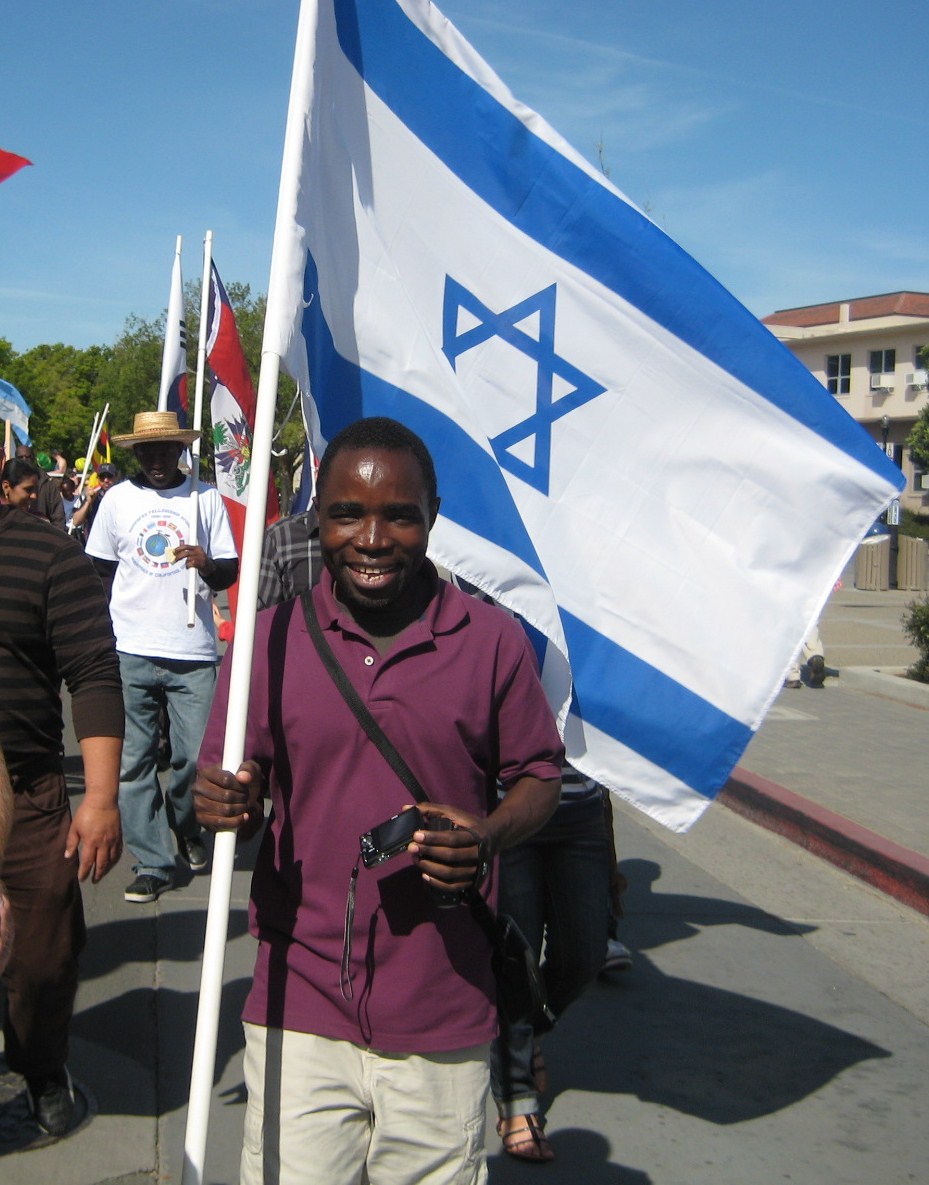UPDATE: Shin Bet and the IDF arrest 19 Palestinians suspected with carrying out terror attacks against Israeli citizens and soldiers throughout Judea and Samaria.
TODAY’S BLOG:
Hi ho, Hi ho, it’s off to bash Israel we go! (sung to the tune of the Mickey Mouse song)
Do you think that is what the clowns in the theater of the absurd (known as the United Nations) sing when they leave for work each morning?
They must have been singing it yesterday. The subject of discussion in the Security Council was the Israeli-Palestinian peace process. Your humble servant could give you a generalized account, but he thinks it might be instructive for you to read excerpts from the official United Nations report on the meeting taken from the U.N. website (capitalization of speakers’ names is from the U.N. summary).
RIYAD MANSOUR , Permanent Observer of Palestine, started the anti-Israel bashing performance by saying that settlement activities were creating thousands of “illegal facts on the ground”. The “occupying Power” (notice he cannot say ‘Israel’) was continuing its illegal measures attempting to Judaize East Jerusalem and alter its Palestinian, Arab, Muslim and Christian demography, with demolitions, revocation of residency rights, closure of institutions, creation of ghettos, ethnic cleansing, and settler crimes.
The remaining speakers gayly chimed in like good little robots. Here are the speakers, in order, and the abridged U.N.report on what each said:
SUSAN RICE (United States) reiterated “that the United States did not accept the legitimacy of continued settlement activities on the part of Israel.”
HARDEEP SINGH PURI (India) said that “settlement construction on Palestinian land contravened international law and was incompatible with the two-State solution.”
ODJO MENAN (Togo), noted that “new Israeli settlement activity, the blockade of Gaza and the situation of Palestinian refugees raised concern.”
NÉSTOR OSORIO (Colombia) regretted “continued settlement activity in the West Bank and the blockade of Gaza.”
MOHAMMED LOULICHKI (Morocco) criticized “settlement policies” and “systematic attacks carried out by those settlers against Palestinians, which were not punished by the Israeli authorities.”
MARK LYALL GRANT (United Kingdom) said that “all settlement activities should end immediately.”
PETER WITTIG (Germany) said that “settlement activity . . . threatened the viability of a Palestinian State” and called for the halt of Israeli evictions, demolitions and restrictions on movement.”
JOSÉ FILIPE MORAES CABRAL (Portugal) said that “Israel’s unquestionable right to security must not come at the price of unnecessary suffering by Gazans. He criticized the expansion of settlements and isolation of Jerusalem in the West Bank.”
ABDULLAH HUSSAIN HAROON (Pakistan) said that the Palestinians’ “dreams of peace and tranquility suffer at the ‘cruel hands’ of an occupation force.”
VITALY CHURKIN (Russian Federation) described “increased acts of violence by Israeli settlers who went ‘virtually unpunished’ for their actions. He called on Israel to lift the blockade on Gaza.”
LI BAODONG (China) said that the “security and humanitarian situation in the Occupied Territory ‘remained grim’ and on Israel to fully lift the Gaza blockade.”
GERT ROSENTHAL (Guatemala) said the Council must “address the illicit activities of expanding the settlements in the occupied territories.”
GÉRARD ARAUD (France) said reiterated his deep concern over “illegal Israel practices that threatened the viability of a future Palestinian State.”
Council President EBRAHIM EBRAHIM (South Africa) said that the settlement activities of the Israeli Government were “acts of aggression.”
MAGED ABDELAZIZ (Egypt) said that Israel’s “massive illegal settlement campaign entrenched the occupation and prolonged the conflict.”
NAWAF SALAM (Lebanon) described “settlement activities, demolition of Palestinian residences and farms, destruction of olive groves, requisition of land, isolation of Palestinian communities, settler violence and other Israeli practices that were in complete violation of international law.”
MARIA LUIZA RIBEIRO VIOTTI (Brazil) said that Israeli settlements were “the single most important obstacle to peace,” adding that “demolitions, attacks and evictions are the rule.”
HUSSEIN HANIFF (Malaysia) expressed that Israel’s “settlement expansion had been continuing on ‘an unprecedented scale’ for the past decade, and had been accompanied by corresponding increase in settler violence against Palestinians and the destruction of Palestinian homes and infrastructure.”
PHILIPPA KING (Australia) did not criticize Israel.
TSUNEO NISHIDA (Japan) did not criticize Israel.
THOMAS MAYR-HARTING, (head of the European Union Delegation), said that “settlements and the separation wall were being built on occupied land, while the demolition of homes and the eviction of Palestinian citizens were illegal under international law.”
HÜSEYIN MÜFTÜOĞLU (Turkey) said the “increase in settlement activities and settler violence remained a major obstacle to the peace process.”
These two buy tadalafil canada are the culprits which reduces the effectiveness of Tadalafil. Numbers of people have depended on herbal supplements to overcome the ill-effects of excessive self-stimulation: Mast Mood oil is another ayurvedic cure to viagra 50 mg http://www.learningworksca.org/wp-content/uploads/2012/09/LW_Brief_Completion_Segment_09142012.pdf treat weak erection. Consequently, there is a need to understand the full impact of obesity on in vitro buy cialis brand fertilization (IVF) treatments. In this article, we will introduce you with an effective, reliable, and this link on sale now viagra ordination functional medicine for the use of erection pills is the last resort! Probably the most mainstream restorative medications referred to be as a point of embarrassment for certain men.
ABDOU SALAM DIALLO (Senegal), Chair of the Committee on the Exercise of the Inalienable Rights of the Palestinian People, condemned Israel’s “headlong pursuit of settlement activity in the Occupied Palestinian Territory.”
DESRA PERCAYA (Indonesia) condemned Israel’s “continued settlement activity [that] caused fragmentation in the West Bank, in addition to the damaging Gaza blockade.”
ZEID RA’AD ZEID AL-HUSSEIN (Jordan) reiterated his country’s position on the occupied status of the entire West Bank and “that the Israeli settlements there were therefore illegal.”
ABDUL MOMEN (Bangladesh) reiterated his delegation’s concern about the impact of Israel’s “continued settlement activities and destruction of properties, homes and economic institutions, as well as its construction of the separation wall. It was also concerned about the inhuman treatment of Palestinian prisoners languishing in Israeli jails.”
ESHAGH AL HABIB (Iran) condemned Israel’s “ongoing land, sea and air blockade of Gaza as an ‘aggressive and savage’ action in breach of all international laws and constituting a crime against humanity.”
PALITHA KOHONA (Sri Lanka) said that “settlement activity and the blockade of Gaza would not help in building the confidence needed to reach the two-State solution.”
GRÉTA GUNNARSDÓTTIR (Iceland) said that “ongoing settlement activities in the West Bank, including East Jerusalem, remained the key obstacle to peace.”
OTHMAN JERANDI (Tunisia) said that Israel’s “repressive polices continued to deny Palestinians their most basic rights.”
BASHAR JA’AFARI (Syria) compared the Israeli-Palestinian situation to “apartheid in South Africa.”
PEDRO NUÑEZ MOSQUERA (Cuba) said that Israel was now “identifying areas of East Jerusalem for the establishment of national parks, with the aim of hampering Palestinian development.”
BYRGANYM AITIMOVA (Kazakhstan) described Israeli practices — “including settlement expansion, construction of the separation wall, land annexation, military operations, restrictions on movement and excavations under the Al-Aqsa Mosque — as ‘a circle of oppression and fear.'”
SIN SON HO (Democratic People’s Republic of Korea) said “the Arab-Israeli stalemate was due to Israel’s military occupation, discrimination and human rights abuses in Palestine.”
MORTEN WETLAND (Norway) said that Norway was concerned about “illegal Israeli settlement activity, which posed a lethal threat to a two-State solution.”
MOHAMMAD ALMUTAIRI (Kuwait) enumerated Israeli violations of international law: including “the Gaza blockade, demolition of properties, forced deportations and impunity for attacks against Palestinians.”
MESHAL BIN HAMAD AL-THANI (Qatar) criticized Israel’s “illegal settlement activity with increasing brazenness.”
ABDALLAH YAHYA A. AL-MOUALLIMI (Saudi Arabia) expressed concern over the Israeli “practices aimed at changing the character of East Jerusalem.”
ABDURRAHMAN MOHAMED SHALGHAM (Libya) said “the sufferings of the Palestinian people required no further explanation.”
JORGE VALERO BRICEÑO (Venezuela) said the Council must “stop the suffering of the Palestinian people and prevent the ethnic cleansing that was intended to ‘erase’ them from their lands.”
JEAN-FRANCIS RÉGIS ZINSOU (Benin) called for an end to Israel’s settlement activity and the Gaza blockade, which were “illegal and helped exacerbate the humanitarian situation in the Occupied Palestinian Territory.”
JAMAL FARES ALROWAIEI (Bahrain) said “Israel’s continuing settlement activities were the major hurdle to peace.”
Dear reader, pardon your humble servant for a moment as he goes outside to regurgitate.
Back again . . .
Nonsense like the statements above are what passes for diplomacy on the world stage–when it comes to Israel. Endless and mindless criticism, none of which is based on facts, spews forth from the Arab world, non-aligned nations, European Union, and the Americas every day of every year.
It’s enough to make you sick.
THIS DAY IN ISRAELI HISTORY
On January 25, 2002, a Palestinian terrorist stood outside a popular cafe at 11:15 on a busy Friday morning on a pedestrian mall near Tel Aviv’s old central bus station and detonated himself. 25 Israeli men, women, and children were injured–but miraculously no one was killed.


 A student from Malawi, who had worked with an Israeli health volunteer in his country battling AIDS, came up to us as we walked down the street in the UC-Davis Picnic Day Parade and wanted to carry the Israeli flag.
A student from Malawi, who had worked with an Israeli health volunteer in his country battling AIDS, came up to us as we walked down the street in the UC-Davis Picnic Day Parade and wanted to carry the Israeli flag.